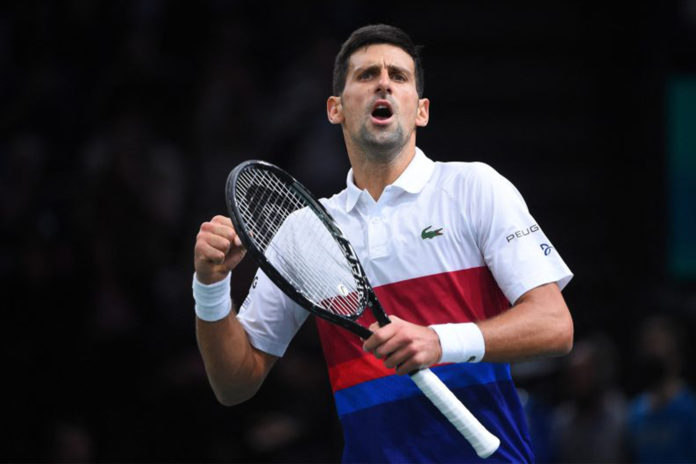

“He’s a very strange cat, Novak is,” Australian tennis player Nick Kyrgios once said.
It seems to be an effective summary.
Serbian tennis player Novak Djokovic attempted to play in the 2022 Australian Open while being unvaccinated. Distinctly parody-like, the attempts spanned shapeshifting COVID-19 test results, false information on travel documents, prolonged indecision on his visa status and miscommunications between Tennis Australia and the Australian government.
The incidents culminated in his brief detainment in a detention facility and eventual deportation from Australia. Australian citizens were upset that such a fuss persisted around a tennis star when national restrictions prevented some overseas Australians from returning home without proof of vaccination. Accusations of elitism, both indirect and explicit, were prevalent.
But the strangeness builds when looking at the detention center where Djokovic was detained. Park Hotel in Melbourne, a COVID-19 quarantine facility that turned into an Alternative Place of Detention (APOD), is filled with asylum seekers and refugees who have been put there for a seemingly indefinite amount of time with little connection to the outside world. The number of hotels is unclear and the secrecy surrounding the detention centres makes it difficult to advocate for the detained.
Djokovic’s mother, after speaking to him over the phone when he was detained, accused the Australian authorities of treating him “like a prisoner.” She cited the dirtiness and the terrible food.
“It’s just not fair. It’s not human,” she said.
The Serbian ministry declared his treatment as “inappropriate and inhumane.” Djokovic made no comments on the situation. After his release, the scrutiny the hotel received no longer made breaking headlines.
This is unfortunate. With Djokovic’s direct experience in these hotels and his social influence, he could have sustained the media attention around APODs and been a catalyst for change. He is no stranger to philanthropy from his participation in charity matches, partnership with world organizations and social media presence. He helped glean funding for the 2010 Haiti earthquakes, 2010-11 Queensland floods, 2014 Balkan floods and the establishment of schools in underprivileged Serbian communities. During the yearly Davis Cup matches in Serbia, he socialized with hundreds of Kosovo youth from unstable backgrounds.
“I am always glad when I have the opportunity to make children happy, especially children … who grow up in difficult conditions,” he said in 2016.
Djokovic’s philanthropy is contextualized by his own upbringing, which intersected with the Kosovo war. Djokovic’s hometown of Belgrade endured 11-week NATO-driven bombings as intervention measures against the Serbian government’s ethnic cleansing of Albanian Kosovans occurred. Meanwhile, Djokovic navigated the turmoil with tennis, with his working-class parents devoting all of their resources into his athletic growth.
How could someone with these roots stay silent on matters of human suffering within detention centres? Experiencing violence in youth along with a drive for success would surely instill an understanding of human nature, fear and potential that gives way to easy empathy. It would seem straightforward that such an experience should spark sensitivity and activism for people in oppressive conditions.
For Djokovic, and similar celebrities who possess life experience and massive social media followings, this self-awareness is a moral duty. The world cannot afford their desensitization – very strange cats they may be.
